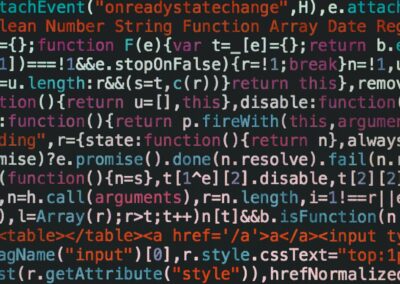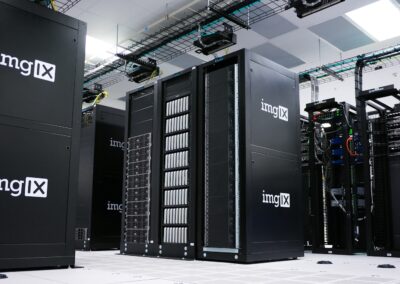Implementing Data Privacy Laws to Protect Sensitive Information
The Role of Data Privacy in AI Development
The enhancement of data privacy in AI and Blockchain is critical for protecting sensitive information across various sectors, including healthcare and finance. As artificial intelligence (AI) and blockchain technologies evolve, the importance of implementing robust data privacy laws becomes increasingly apparent. These laws ensure that personal and financial information is safeguarded from unauthorized access and misuse, which is crucial for maintaining trust and compliance in today’s digital landscape.
In regions such as Saudi Arabia and the UAE, where technological innovation is rapidly advancing, the integration of data privacy regulations into AI development processes is essential. These regulations provide a framework for managing data ethically and securely, particularly when handling sensitive information in sectors like healthcare and finance. For instance, AI systems used in healthcare must comply with strict data protection standards to ensure patient confidentiality and prevent data breaches. Similarly, financial institutions leveraging AI for predictive analytics must adhere to privacy laws to protect clients’ financial data.
The implementation of data privacy laws not only helps mitigate risks associated with data breaches but also enhances the overall reliability and credibility of AI systems. By incorporating these regulations into their development processes, organizations in Riyadh and Dubai can build AI solutions that are both effective and compliant, thereby fostering trust among users and stakeholders.
Blockchain Technology and Data Privacy
Blockchain technology offers a promising solution for enhancing data privacy in various sectors, thanks to its decentralized and immutable nature. In Saudi Arabia and the UAE, where blockchain is increasingly being adopted, integrating data privacy measures into blockchain solutions is essential for ensuring the protection of sensitive information.
Blockchain’s inherent characteristics, such as transparency and security, make it an ideal tool for implementing data privacy laws. By utilizing blockchain’s distributed ledger capabilities, organizations can create secure and verifiable records of data transactions, which helps protect against unauthorized access and tampering. In Dubai, for instance, blockchain initiatives are being explored to improve data privacy in sectors such as finance and healthcare, where the secure handling of sensitive information is paramount.
Moreover, blockchain technology can enhance data privacy by enabling users to have greater control over their personal information. Through mechanisms such as smart contracts and cryptographic encryption, blockchain can ensure that data is shared and accessed only by authorized parties. This approach not only supports compliance with data protection laws but also empowers individuals to manage their own data privacy.
Generative AI and Data Protection Challenges
Generative AI, with its ability to create new content and solutions, presents unique data protection challenges that must be addressed through effective privacy regulations. In the UAE, where generative AI is being actively developed, establishing clear guidelines for data privacy is crucial for managing these challenges and ensuring responsible use of AI technologies.
One of the primary concerns with generative AI is the potential for misuse of personal data. Generative AI systems can process large volumes of data to create new outputs, raising questions about how this data is used and protected. To address these concerns, data privacy laws must be adapted to cover the specific risks associated with generative AI, such as the creation of synthetic data or the potential for data breaches.
In Riyadh, businesses and researchers are working to develop frameworks that balance innovation with data protection. These frameworks aim to ensure that generative AI applications are designed and implemented in a way that complies with data privacy regulations and safeguards sensitive information. By addressing these challenges proactively, organizations can harness the benefits of generative AI while maintaining high standards of data protection.
Strategic Approaches to Data Privacy for Business Success
Leadership and Data Privacy Compliance
Effective leadership plays a crucial role in ensuring data privacy compliance and protecting sensitive information. In Saudi Arabia and the UAE, business executives and mid-level managers must prioritize data privacy as a key component of their overall strategy. By fostering a culture of data protection and integrating privacy considerations into decision-making processes, leaders can enhance their organization’s reputation and ensure compliance with relevant regulations.
In Dubai, for example, executives are increasingly focusing on data privacy as a strategic priority, recognizing its impact on business success and stakeholder trust. Implementing comprehensive data protection policies and investing in privacy training for employees are essential steps for achieving compliance and safeguarding sensitive information. By taking a proactive approach to data privacy, leaders can mitigate risks and build a resilient and trustworthy organization.
Furthermore, leadership in data privacy involves staying informed about evolving regulations and technological advancements. In Riyadh, businesses are leveraging executive coaching services to enhance their understanding of data privacy laws and best practices. These coaching programs help leaders navigate complex privacy challenges and develop strategies for maintaining compliance in a rapidly changing digital environment.
Project Management and Data Privacy Integration
Integrating data privacy considerations into project management processes is essential for ensuring that sensitive information is protected throughout the lifecycle of AI and blockchain projects. In Saudi Arabia and the UAE, effective project management practices that incorporate data privacy measures can enhance the success and sustainability of technology initiatives.
Project managers in Dubai are increasingly adopting data privacy frameworks that align with industry regulations and best practices. This includes conducting privacy impact assessments, implementing data protection controls, and ensuring that all project stakeholders are aware of their privacy responsibilities. By incorporating these measures into project management processes, organizations can minimize the risk of data breaches and ensure that their technology solutions are both secure and compliant.
Additionally, project managers must collaborate closely with legal and compliance teams to address data privacy concerns and implement appropriate safeguards. In Riyadh, businesses are recognizing the importance of cross-functional collaboration in managing data privacy and ensuring that privacy considerations are integrated into every stage of project development. This approach not only supports regulatory compliance but also enhances the overall effectiveness and reliability of technology projects.
Conclusion: A Comprehensive Approach to Data Privacy in Technology
In conclusion, enhancing data privacy in AI and blockchain technologies is essential for protecting sensitive information and ensuring compliance with data protection laws. By implementing robust privacy regulations, leveraging blockchain’s security features, and addressing the challenges posed by generative AI, organizations in Saudi Arabia and the UAE can safeguard their data and build trust with stakeholders. Effective leadership and strategic project management practices further support data privacy efforts and contribute to business success. Embracing a comprehensive approach to data privacy will be crucial for navigating the complexities of modern technology and maintaining a secure digital environment.
—
#DataPrivacy, #AIDevelopment, #BlockchainTechnology, #GenerativeAI, #DataProtectionLaws, #Healthcare, #Finance, #SaudiArabia, #UAE, #Riyadh, #Dubai, #Leadership, #ProjectManagement, #BusinessSuccess























